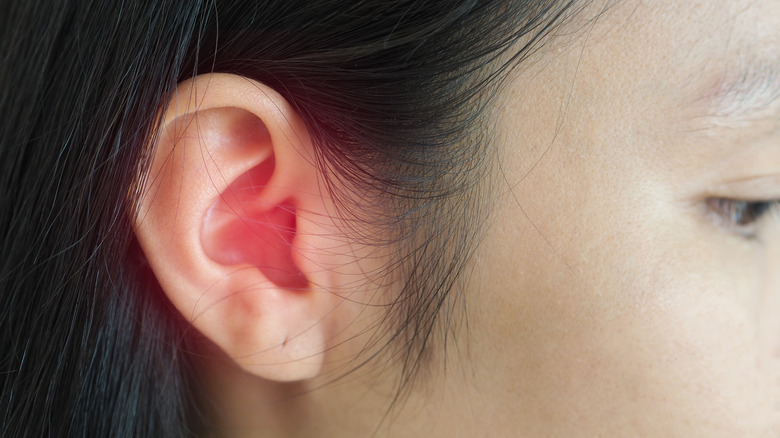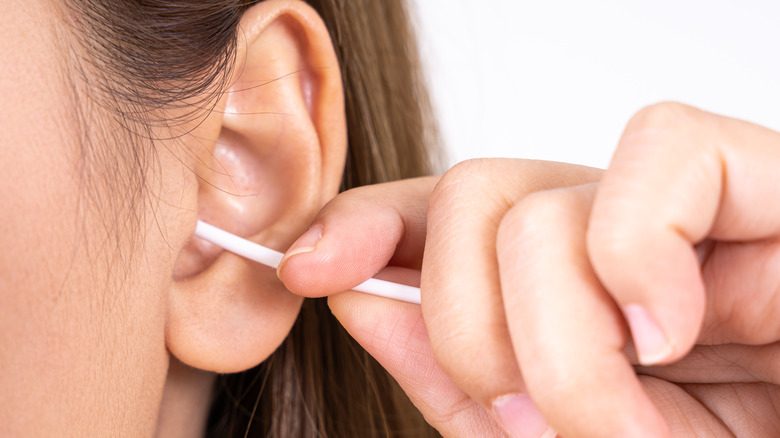What Does It Feel Like When You Have A Ruptured Eardrum?
The eardrum is instrumental in our ability to convert sound waves into nerve signals (via Mayo Clinic). Not only does the eardrum support our hearing, but it also serves as a protective barrier against bacteria, water, and other contaminants making their way into the middle ear. When our eardrum ruptures, it means the thin tissue that stands between the ear canal and the middle ear has suffered a hole or tear.
So what factors put us at risk for an eardrum rupture? Experts at the Coastal Ear Nose Throat Allergy Hearing Center explain there are a number of potential causes for the condition. Such causes include changes in air pressure while flying, loud explosions, scuba diving, or head trauma. Sticking foreign objects directly into the ear, including cotton swabs, can also put one at risk for an eardrum rupture. Although the chances are minimal, attempting to pop your ears by plugging your nose and exhaling forcefully can also pose a risk for eardrum rupture, notes Medical News Today.
While the physical sensations of an eardrum rupture can feel different from one person to another, here are some signs to look out for that may signal your eardrum has ruptured and when to see a doctor.
Treatment and prevention against eardrum ruptures
Those with a ruptured eardrum may feel an abrupt drop or surge in pain, spinning sensations, or general discomfort (per Coastal Ear Nose Throat Allergy Hearing Center). Other symptoms may include hearing loss, nausea, vomiting, ringing in the ears, as well as fluid drainage from the ear containing blood or pus. However, some may not experience any pain whatsoever.
A perforated eardrum often takes care of itself within a matter of weeks, notes the Mayo Clinic. However, in the event that it has not healed within three to six months' time, one may be at risk for complications such as prolonged hearing loss, middle ear infections, as well as middle ear cysts that in some cases, can lead to bone damage within the ear.
Be sure to consult with your physician if you suspect an eardrum rupture. Experts at the Coastal Ear Nose Throat Allergy Hearing Center explain that treatment options include the use of antibiotics, patching, or surgery. To help protect yourself from eardrum ruptures in the first place, the Mayo Clinic advises wearing pressure-equalizing ear plugs when in flight, keeping objects out of one's ears, and wearing protective ear coverings when working in loud environments.


